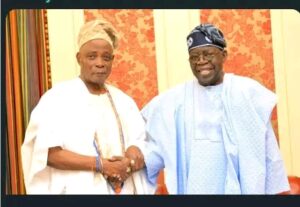
After 26 agonizing years of separation, including 22 harrowing years on death row, Ogbonna Igbojionu has finally reunited with his aged mother in a deeply emotional moment at the Abia State Government House.

Igbojionu was wrongfully convicted and imprisoned at Kirikiri Maximum Security Prison in Lagos over a generator transaction that later emerged as a miscarriage of justice. The actual culprit, Segun Ajibade, who sold him the generator and was tied to the alleged crime, was pardoned and released in 2016 — while Igbojionu languished behind bars for nearly a decade more.
The long-overdue breakthrough began when TikToker Olumide Ogunsanwo (popularly known as Sea King) shared Igbojionu’s heartbreaking story, sparking massive public attention. Among those moved by the post was Enugu-based activist Simon Oshi, who took immediate action.
IGP Instructs Police To Roll Out Plan to cut Crime Rates by 50% in 2025
“Amotekun 615: The Unyielding Vanguard That Has Vanquished Crime in Oyo State”
Oshi visited Kirikiri Prison with legal representatives, confirmed Igbojionu’s identity and Abia origins, and escalated the matter to Abia State Governor Alex Otti.
Governor Otti wasted no time. He deployed the state’s Attorney General to Lagos to verify the facts and coordinated efforts with authorities in Lagos and Ogun States. These joint efforts led to the release of Igbojionu, along with Olawale Adediji and another inmate, on July 6, 2025.
At the Abia Government House, Igbojionu’s reunion with his mother brought onlookers to tears. The two embraced tightly — a moment of bittersweet relief, captured in viral photos and videos that swept across social media.
Overwhelmed by gratitude, Igbojionu expressed his heartfelt appreciation to Governor Otti:
“Thank you, sir, for giving me another chance at life.”
Governor Otti, who promised full support for Igbojionu’s reintegration into society, reaffirmed his administration’s commitment to justice and humanity.
Igbojionu’s story stands as a chilling reminder of the flaws in Nigeria’s justice system — and the urgent need for reform. It also reflects the growing power of digital activism and good leadership in correcting decades-long injustices.









